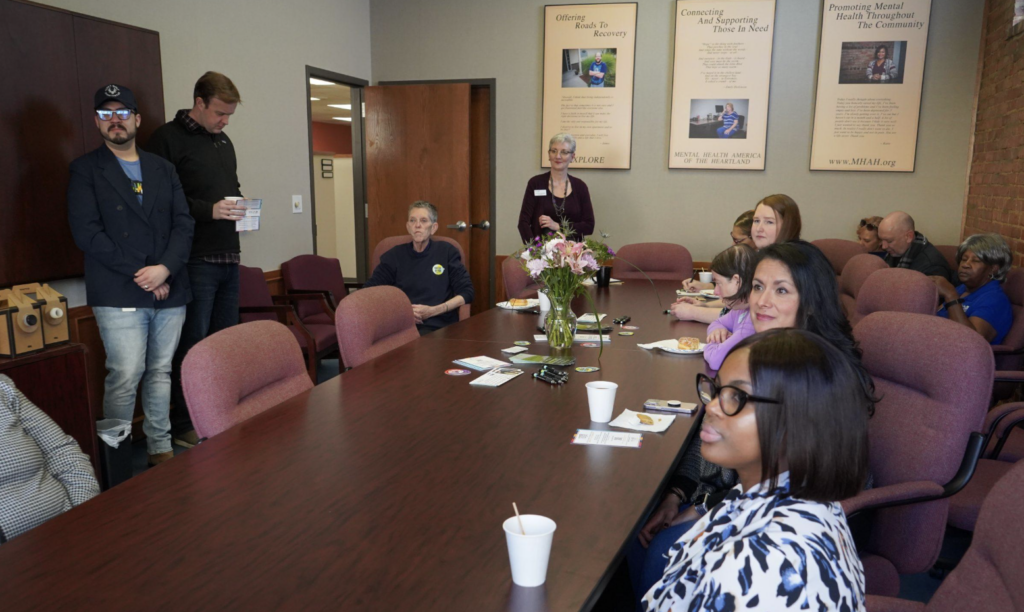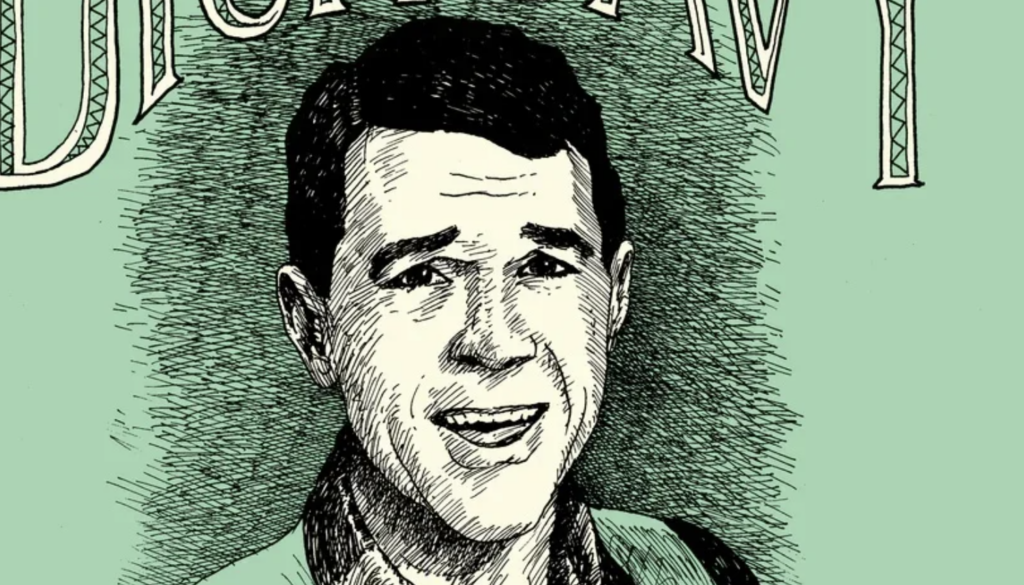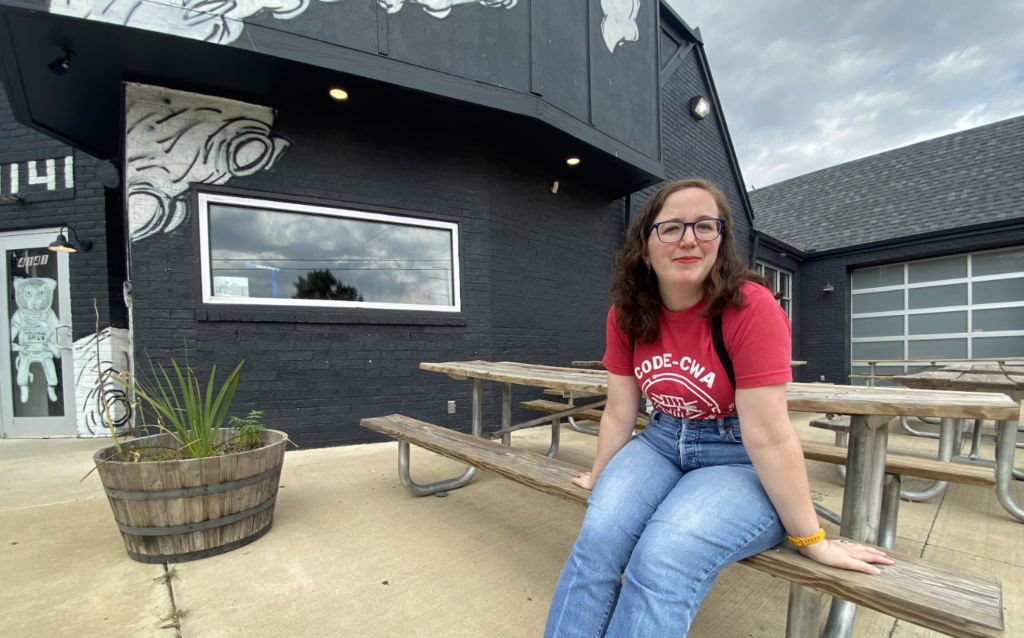Cannavangelists: NORML’s half-century of pioneering the plant
Although medicinal and recreational cannabis may have become legal in Missouri in recent years, the plant has deep-rooted connections within Kansas City and the state. Some of the earliest pioneers and champions of the plant found themselves deeply involved in the scene decades prior to any state legislation that would move toward legalization.
The risks were significant and the rewards, at the time, seemed unattainable. Nevertheless, individuals, not only in the state but around the country, saw the benefits that cannabis has to offer and put their livelihoods on the line.
Now that marijuana has become easier than ever to obtain in Missouri, the earliest efforts often go unlooked. But that shouldn’t be the case. That flower you roll up, the edibles you scarf down, and the concentrate you combust can all be attributed to who some may call cannabis crusaders.
George Biswell, who calls himself a cannavangelist, is one of the trailblazers in turning the tide in the state. Heading to meet with Biswell, I wasn’t sure what to expect; Was he just going to be the typical hippy from the ‘70s who liked to smoke a lot of weed? There are more layers to this onion. Before we could dive into our conversation, he slid me his business card and said “This is really what I’m about,” pointing to text that reads “It’s not about getting high, it’s about saving lives.”
“I enjoy the high, but it saved my life. It’s saving my life, and it saves a lot of lives,” Biswell says.
His journey with cannabis began casually as a 22-year-old, fresh out of the Air Force in 1971. Biswell settled in a home with other veterans, spending his nights in a sleeping bag for a month. While there, another veteran passed him a joint of Acapulco Gold—a commonly known strain in that era that originated in Mexico.
After trying drinking and other popular recreational drugs, Biswell says that there wasn’t any other fix that could compare to cannabis. After consuming for a couple of years, the vet was introduced to a group of folks who knew a thing or two about the plant.
His friends leased 40 acres and were already cultivating flower. Biswell says their connections to quality seeds came from his time spent in San Francisco in the late ‘60s. From 1973 to 1985, he and others grew marijuana in the metro area. With landscape netting covered with leaves and brush hanging over the top of the grow, there was no reason for anyone to think that weed was being grown on the property from a bird’s eye view.
During these years, they moved operations to a smaller, ten-acre farm after leaving the previous land. Now in the Platte County area, the partners had a yield of about 50 plants. If grown correctly, and depending on numerous outside factors, each plant could result in potentially a pound or two of consumable flower.
But this operation was no kingpin, Biswell says. They enjoyed growing cannabis, smoking cannabis, and gifting cannabis to friends and family. He worked as a commercial truck driver during this time, so he didn’t need to turn this endeavor into a side hustle to make ends meet.
Around 1976, Biswell met a man who he refers to as “Mr. Marijuana in the state”—Dan Viets.
In 1972, Viets, a Mizzou law student and president of the student body at the time, took a school trip to Washington, D.C. for a conference. While there, he found out about another meeting taking place that same weekend—The first national NORML conference was set to be held in a local church.
NORML is a non-profit advocacy group for those opposed to cannabis prohibitions that was founded in 1970 by Keith Stroup—a young lawyer who saw the benefits of cannabis and wanted to create reform.
After meeting Stroup and learning about the group’s mission, Viets was intrigued and got involved. Soon after, his home in Columbia became a meet-in-the-middle spot for KC and St. Louis pot activists. This would lead him to becoming a lawyer for individuals with marijuana-related charges.
“It hadn’t occurred to me before that one could do that, but, indeed, that’s what I have done for the past 40 years is primarily represent people with marijuana and other drug-related charges across the state of Missouri,” he says. “I’ve enjoyed that, and I still enjoy practicing law.”
As early as 1975, Viets and the NORML Missouri sector were holding conferences at the University of Missouri. Fundraising and lobbying in the General Assembly also went hand-in-hand with the organization.
Viets conducted informal classes through a program called CommUniversity held at UMKC, where he presented the topic of decriminalizing cannabis in the state. Here, Biswell heard him speak and decided that he wanted to join the movement.
During the ‘70s and early ‘80s, Biswell, along with other members, was at the forefront of attempting to decriminalize the plant in Kansas City.
“We started a Kansas City Chapter probably in ‘77, somewhere around there, mainly just to get the word out about what we were trying to do, which was to decriminalize cannabis,” Biswell says. “Don’t put anybody in jail for smoking pot.”
From the mid-’70s onward, Biswell and Viets were working to help create change in the Show-Me state.
“In the old days, we were going down there to fight against some really terrible bills,” Viets says. “The legislators competed with each other to find new ways to punish pot smokers. We would find ourselves in the position of criticizing those bills and testifying against those bills, of course, and, fortunately, it’s easier to stop a bill than it is to pass one. So in those days, we measured our success in the bills that did not pass, and a lot of horrible bills were stopped.”
Biswell’s time growing the plant came to an abrupt end when his neighbors began to grow increasingly suspicious. It wasn’t long before they headed down to the local sheriff’s office to throw Biswell’s farm under the bus.
But they didn’t quite get the outcome they were looking for. Before law enforcement could make it out to the property, one of Biswell’s partners had already made him aware of the soon-to-be raid. With a little help from some friends, he was able to clean up their illegal operation.
“We went out there, we chopped it all down and took it down to this manufacturing plant in Kansas City, Kansas to cure,” Biswell says. “It was in September, so it wasn’t quite ready to harvest, but we were able to save it all. And all they had left was the stumps.”
Because Biswell was not at the property upon law enforcement’s arrival, he got in no trouble at all. However, this wasn’t the case for one of his partners.
With the help of a good lawyer, his cannabis colleague served no jail time, but rather five years of probation—lucky to get off so easily in a time when the practice was still incredibly stigmatized.
After the downfall of their farm, NORML’s efforts continued to remain steadfast with the same goal in mind since the formation of the group. In 1994, Biswell began working as an equipment operator for the Kansas City Parks and Recreation Department and had to stop consuming due to random drug tests.
He says that he had been reading The Emperor Wears No Clothes at the time, which encouraged him to remain secluded from other consumers that could potentially entice him.
“There’s no physical addiction to marijuana,” Biswell says. “Never has been, never will be. It’s all in your head, whether you want to do it or not. And so that’s what I did.”
He put down the joint for 17 years and strayed away from working with NORML on cannabis law reform. But when retirement rolled around, Biswell was quick to rekindle the spark. On the day of his retirement in 2011, one of the administrators at the department—who was a cannabis consumer—gave him a farewell gift.
“She hands me two joints, she gives me a hug, and puts it in my hand. I go, ‘All right.’ She says, ‘No, that ain’t like what you used back in the day, Bis.’ I said, ‘Well, we’ll see.’”
Afterward, Biswell found himself involved with NORML once again—and the 2010s looked a bit different than the ‘70s and ‘80s. With multiple states having legalized medical cannabis sales, the group knew that it was only a matter of time before they could get Missouri politicians on board.
“No one else that I know has stuck with the issue as long as George has,” Viets says.
Viets is currently on the NORML’s National Chair of Board of Directors and Biswell is the NORML KC Deputy Director.
By 2017, these pioneers saw their decades of work beginning to come to fruition as the substance was decriminalized in Kansas City. Obviously, the years following saw legal medical and recreational cannabis pass the test. But that doesn’t mean their work is done.
The group continues to meet regularly, holding meetings on controversial topics, the notion of legalizing the plant at a federal level, and looking at ways to make the current structure of the marijuana program in the state better than it was yesterday.
“Just in the past two weeks, we have worked with legislators to have bills filed, which, in one case, would allow people serving prison time for marijuana offenses to petition for immediate release, we have a bill filed which would allow medical patients who are students at state universities and colleges to possess and, in private, consume their medicine on campus. Most of the campuses think they can outlaw that. I think that’s debatable,” Viets says.
Bills that would allow individuals to consume cannabis wherever tobacco is permitted, provisions on air quality within cannabis smoke lounges, and easier access for business owners to enter into the Missouri market are a few of the current declarations that the group is working on.
The passion for their decade’s worth of work and commitment does not stem from getting high and having a good time; They want to touch lives for the better. It all started with keeping marijuana users out of jail, and that hasn’t changed.
“The bottom line has always been, why are we treating marijuana users like criminals? Why are we putting people in prison for marijuana? That’s the issue. The issue is not getting high. The issue is, why are we as a society treating people who use a relatively harmless plant as if they were terrible criminals? And that is unjustifiable. It has always been unjustifiable. And that is where the debate needs to focus. Why are we putting people in prison for marijuana? And we still do it. We still do it, not as much, but it’s still going on,” Viets says.
If it wasn’t for individuals like Biswell and Viets, who truly trailblazed what we know as the cannabis industry in the state, who knows where marijuana would be sitting in the Missouri legislature? Through their ongoing efforts, they hope to continue to shape what we know as the cannabis industry for the better.
Click below to read the April 2025 Issue of The Pitch Magazine:






